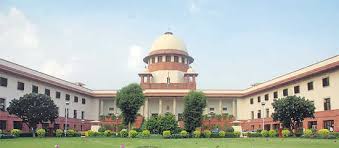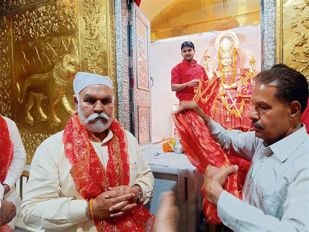
BY Satya Prakash
There is never a dull day in the Supreme Court. On a normal working day, over a dozen Benches of the Supreme Court take up over 700 cases — 10 times more than what the US Supreme Court hears in a year.
Many of these cases are PILs filed by activists, lawyers and civil society groups espousing public cause on behalf of those unable to approach the top court for a variety of reasons. Often such cases hit national and international headlines as the Supreme Court comes to the rescue of the poor, holds the Executive to account, declares laws enacted by the Legislature unconstitutional and even fills in the legislative void.
As India fights Covid-19 crisis, the Supreme Court has been flooded with a series of PILs on issues relating to the pandemic. Look at the range of subjects covered in the PILs — wages for MGNREGA job card holders, food and medicines for migrant workers leaving cities, free Covid-19 testing, house-to-house testing, loan moratorium, personal protective gear for doctors, health workers and sanitation workers, nationalisation of health sector, evacuation of Indians from foreign countries, preventing spread of the pandemic among prison inmates and minors lodged in observation homes and many more. Several PILs have been filed in various high courts as well.
In any democratic system based on a Constitution that guarantees a set of fundamental rights to its citizens, there is always scope for judicial activism as constitutional courts are entrusted with the responsibility of protecting citizens’ rights against possible excesses by the State.
The Executive has been envisaged as a punching bag. No one really holds back their punches when it comes to the Executive – be it the Central or the state governments. The Executive is accountable to Parliament. Citizens and civil society can drag it to constitutional courts for its action and inaction. The Supreme Court and high courts regularly pull it up for lapses, even for inadvertent ones; and rightly so.
Barring a few exceptions, including the Emergency days, the constitutional courts have been performing this task to the best of their abilities — often while dealing with PILs or suo motu i.e. on their own.
During this crisis as well, many of the PILs did raise legitimate issues. The Supreme Court itself took suo motu cognisance of condition of prison inmates and juveniles lodges in observation homes and issued necessary directions to prevent spread of the virus among them.
But these are not normal times. The country is in the midst of a pandemic that has forced the government to declare a nationwide lockdown to prevent the spread of coronavirus that has already killed over 1 lakh people across the world. The Supreme Court and high courts are functioning in a restricted manner via video conferencing to maintain social distancing.
The sheer number of PILs and some of the issues raised put both the Judiciary and the Executive under undue pressure, raising questions about the PIL mechanism devised to help the poor and the needy. Expectedly, the government maintained a non-adversarial approach.
Solicitor General Tushar Mehta told the top court that till India and the world came out of this unprecedented tragedy such “professional PIL shops” must be locked down. Asserting that the Centre and state governments were working on a war footing, Mehta said government officials should be left to discharge their duties and constitutional courts should be circumspect in entertaining such PILs during this health emergency.
The Supreme Court appears to be conscious of the unprecedented situation. Maintaining that policy decisions were prerogative of the Government, a Bench headed by Chief Justice of India SA Bobde on April 7 refused to pass orders for payment of wages to migrant workers affected by the nationwide lockdown due to Covid-19.
“We don’t want to supplant the wisdom of the Government with our wisdom...We can’t take a better policy decision at this stage. We don’t want to interfere with government decisions for the next 10-15 days,” CJI Bobde told the petitioners’ counsel. It wanted the petitioner to go through the status report filed by the government first.
Covid-19 has enforced a different administrative and social code requiring social distancing to prevent spread of the pandemic. Everyone is trying to adapt and adjust to this new reality that has also drastically increased human dependence on information technology.
The scale of the operations to ensure essential supplies to citizens across India; to provide food to the poor; and to give shelter to lakhs of migrant workers headed home on foot along with food and medicines, is unprecedented. Shortcomings are bound to be there. One can point out without finger pointing. It’s time for hand holding. For a change, let’s hold back our punches for normal days.
Join Whatsapp Channel of The Tribune for latest updates.


























